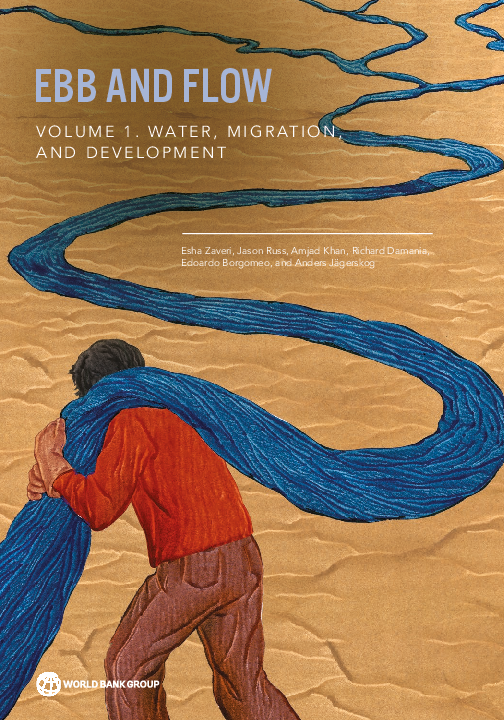 Read this article in French
Read this article in French- Share this article
- Subscribe to our newsletter
Ebb and Flow
As climate change accelerates a global water crisis, rainfall variability is expected to be one of the contributing forces in migration, according to the report Ebb and Flow, released by the World Bank in August 2021. The report consists of two parts: Water, Migration, and Development and Water in the Shadow of Conflict (Middle East and North Africa).
In the Middle East and North Africa (MENA), where 60 per cent of the population live in water-stressed areas, the report notes that water is already one of the main vulnerabilities faced by people there, particularly by those displaced by conflicts and their host communities.
The report finds that water deficits are linked to ten per cent of the increase in total migration within countries between 1970 and 2000. By the end of this century, worsening droughts are projected to affect about 700 million people. These climate shocks will have a disproportionate impact on the developing world, with more than 85 per cent of people affected living in low- or middle-income countries. Yet it is often the poor who cannot afford to leave. The report finds that residents of poor countries are four times less likely to move than residents of wealthier countries.
Globally, water shocks affect not only the number of people who move, but also the skills they bring with them. Migrants who leave regions with lower rainfall and frequent drought usually possess lower educational levels and skills than other migrant workers, implying significantly lower wages and less access to basic services at their destination.
In the MENA region, war, conflict and unemployment are more influential drivers of migration than events related to water, such as drought. As the effects of climate change intensify, however, these historical patterns may no longer hold. In areas that lack good governance, climate change could exacerbate vulnerabilities and create tensions over water resources, leading to a vicious cycle of water insecurity and fragility.
Water is more often a victim – rather than a primary source – of conflict. The report finds that, since 2011, there have been at least 180 instances in which water infrastructure was targeted in conflicts in Gaza, Yemen, Syria and Libya, leaving hundreds of thousands without access to water.
According to the report findings, steps to build water security are urgently needed within the MENA region. The protracted displacement crisis and water scarcity underline the need to continue to build off of humanitarian interventions and improve policies that promote long-term water security and resilience to shocks
(World Bank/ile)
Read more and download the report at World Bank website





Add a comment
Be the First to Comment